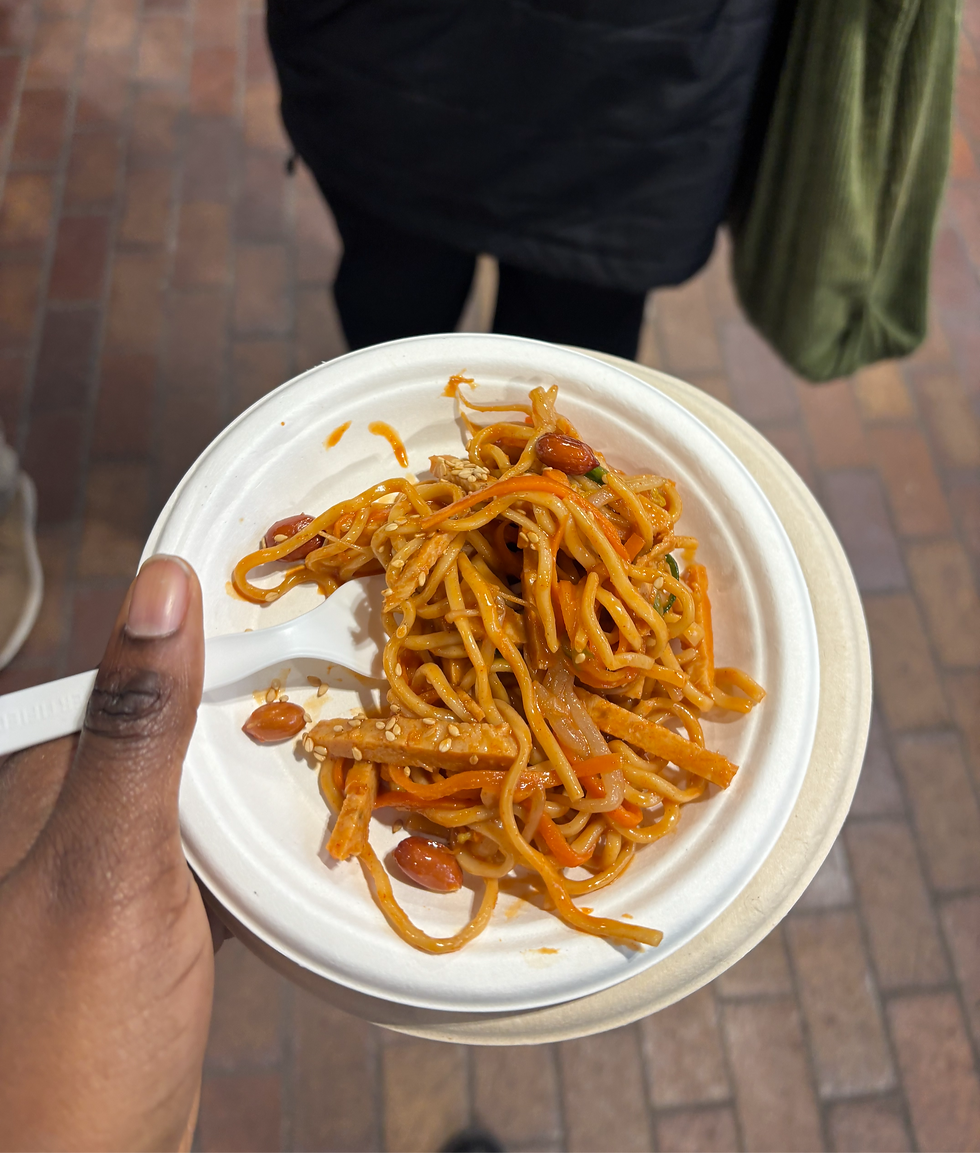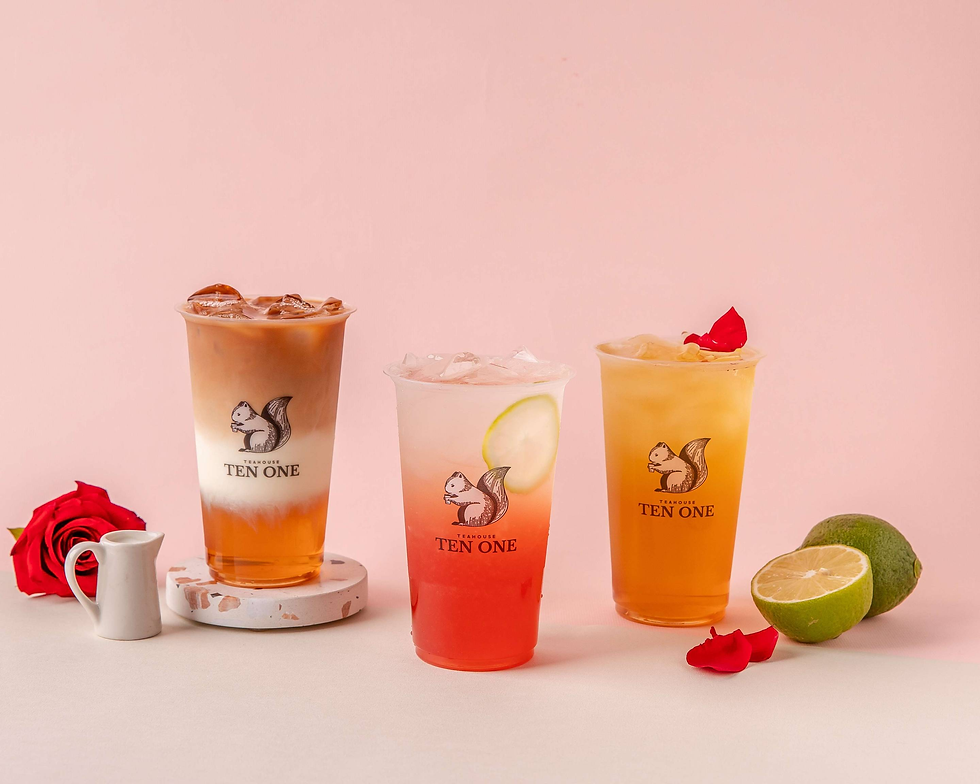Food 4 Thought @ Harvard Review Part 1: Sustaining Food Production.
- May 22, 2025
- 6 min read
Updated: Sep 4, 2025
We are facing a global crisis unlike one previously experienced by mankind. Previously in human history, the ability to grow food and shift from a hunter-gather society to one based on agriculture has been the foundation of civilisation. Civilisation, in turn, allowed for the development of complex societies and sustained population growth. The turn of this millennium has been marked by increasing difficulty in producing the food we need to support a growing global population.
Food 4 Thought is a global collaborative project involving researchers from around the world, aiming to promote scientific development in sustainable food practices. The Food 4 Thought Expo is the centrepiece event of this initiative, bringing light to emerging research, connecting academia to industry, to educators and NGO's.
In this three-part series, I will examine some of the key takeaways from the conference and determine whether they can be adapted and applied to a Caribbean context. This first article will provide a brief overview of my experiences at the conference, highlighting the problems faced on a global level and from a small island perspective.
Preparing to 'Meat' the Problem: What are Plant-based Meat Alternatives?
The name alone is embedded with misinformation and assumptions. Especially in the Caribbean, these ideas are often dismissed as belonging to a different cultural and societal context. I don't disagree that there might be some merit to the wariness that some feel towards the adoption of plant-based meat alternatives. However, all scepticism should come from an educated perspective, which is why I feel like it is essential to start this article by debunking some myths surrounding plant-based meat alternatives.
Is it true that.... | Reality |
All plant-based meat alternatives taste nasty? | ALMOST TRUE. Consumer consensus shows that for most people, plant-based meats have not reached the level where they are indistinguishable from meat in taste and texture. |
Plant-based meat is chemically concocted in a laboratory and contains many artificial ingredients? | FALSE. This idea comes from the fact that unlike meat from animals, plant-based meat alternatives are created. however they are created in the same way that most off-the-shelf products are. These products are made from natural ingredients like peas, soybeans and wheat, with some proteins and nutrients being chemically extracted to create the desired meat-like consistency. |
That you can't get all your nutrients from plant-based meat alternatives, without consuming meat? | FALSE. Vegetarianism, veganism and other diets with limited meat consumption have existed for centuries. Most plant-based meat alternatives are primarily composed of protein rich foods and have additional plant-derived nutrients. |
Attending the Food 4 Thought Festival @ Harvard

What was forecasted to be light showers overnight transformed into sudden flurries and below-zero winds.
Nevertheless, the lecture hall where the Day 2 Opening Keynote was held was filled with researchers, industry experts and students from across the various sectors and the Boston Metropolitan area. Each of them had travelled through the snowy weather to attend the Food 4 Thought Festival at Harvard University.
The Boston College Office of Sustainability was a sponsoring collaborator of the event, providing me and other Boston College students with the opportunity to attend the three-day event for free.
Overcoming delayed T's and pouring sleet, I was gratified by the opportunity to learn about some of the most pressing issues that exist at the intersection of climate change and animal agriculture.
My biggest takeaways had to be the morning Keynote speech delivered by Bruce Friedrich the CEO of the Good Food Institute. Firstly, the US, notorious for its high meat consumption, was not the most worrying trend for meat consumption. Rather, it was the fact that the world was rapidly closing that gap.
The second most concerning trend was the significant amount of food waste generated by consuming meat. Although the conservation of energy in food chains is something taught in basic biology, applying that to a food system that supports billions of people means that there are billions of calories being lost every day in the production of meat products.
To extract one calorie of chicken requires a tradeoff of nine calories that could have otherwise been consumed. For every one calorie of pig humans consumed, eleven calories are wasted. For each calorie of beef consumed, there are a whopping 40 calories that could have otherwise been consumed. This is only the waste that comes from the intrinsic nature of animal production. This does not include waste generated from transportation, animal feed, pollution, and other sources.
The threshold is consumer appetite. Innovation is a must because consumers do not want to - nor should they have to - compromise on taste.
In his presentation, Friedrich argued that simply reducing meat intake and relying on other forms of climate mitigation to make up the difference is not enough. Population growth, rising standards of living, and the advent of AI all point to a growing demand for energy, resulting in higher carbon emissions.
On the other hand, targeting the agricultural industry is more focused and yields greater returns on output. A 50% reduction in meat consumption, replaced by plant-based meat alternatives, will have the same effect in reducing carbon emissions as completely eliminating all air travel.
Another argument for the benefits of plant-based meat alternatives is that it is one of the emission reducing tools we have with the most co-benefits. Some benefits include:
improved health
decrease in animal-borne diseases
decrease in the potency and mutation of viral diseases
improved nutritional health
alleviating malnutrition
decreasing microbial resistance
reduce the risk of pandemics such as COVID-19
and more all in addition to reducing global emissions generated from the lengthy supply chain required to produce our favourite meat products.
One point highlighted in the presentation is the need to fund innovation and let market forces take care of the rest. The primary challenge that this innovation must address is the dual capacity for plant-based meat alternatives to taste as good as, or better than, their animal-based counterparts, while also costing the same or less. This might be true for the American market, but in other cultural settings, it's safe to conclude that plant-based meat alternatives face more barriers to adoption, including cultural ones.
Sampling Plant-based Food.
Barriers aside, I believe it is fair to say that plant-based food products are part of our future. I can say that because attending the festival, I was able to sample products from vendors who specialise in creating plant-based alternatives to animal products, such as meat and dairy. I came to eat and I was not disappointed. Here are some of my favourite and least favourite samples from the festival.
DONE WELL
#3: Spicy Noodles 7/10

I forgot while eating this that it was supposed to be showcasing plant-based meal products. For protein, their were nuts, beans and tofu which usually aren't my favourite but the texture and sauce was enough to bring me back for seconds.
#2: Plant-Based Sausage Links 8/10

It looks like meat, smells like sausage roll and tastes familiar. Although it fails as a direct replica of meet, it succeeds in taste which was savory, and well seasoned with the taste of peppers, beans and carrots and has a sausage-like texture.
#1: Coconut Boston Creme Dream 11/10

I still dream about this donut. Eating it was an experience I'll treasure forever. The donut has no eggs, the chocolate topping as well is vegan. Biting into it and being immersed in fresh coconut milk based creme with ground vanilla and nutmeg was a blissful surprise. I am in love. Saving the planet never tasted better.
NOT A FAN
#3: Boba Tea 6/10

I felt that this company tried to use this festival as a marketing ploy without demonstrating any commitment to the values being espoused. A few weeks later a vegetarian friend and I tried to order here only to find out be met with vagueness and ambiguity about their products ingredients. The tea itself was good though.
#2: Cream Cheese and Pizza 1/10

The only poor experience I had with food at this festival came early into the event after trying their oat based cream cheese. The cream cheese was salty with a lingering after taste and lingering bout of nausea. Despite this I decided to give them a second chance with their cheese pizza.
#1: Empanadas 2/10

I was really looking forward to trying this, the line was long and only growing longer. I was wary when it was served and regretful the moment I ate it. It was dry and the flavors were disjointed – not a fan.
That's good for them. But I want my goat water.
Should we give Plant-Based Meat Alternatives a Chance?
However, just because plant-based meat alternatives exist, doesn't mean that they are appropriate for our cultural and socioeconomic, and nutritional context as Caribbean islands.
So why should we? is the big question. Why must I give up my perfectly good goat water for a knock off made out of vegetables? The answer lies in the health and nutritional crisis facing St Kitts and other islands that import most of their food.
This a topic that deserves to be continued in full length along with nutritional concerns brought up in the conference such as the increasing prevalence of allergies, infant nutrition and school meals. Check back for part two of this series and subscribe to our Newsletter The Steep for updates.



















Comments